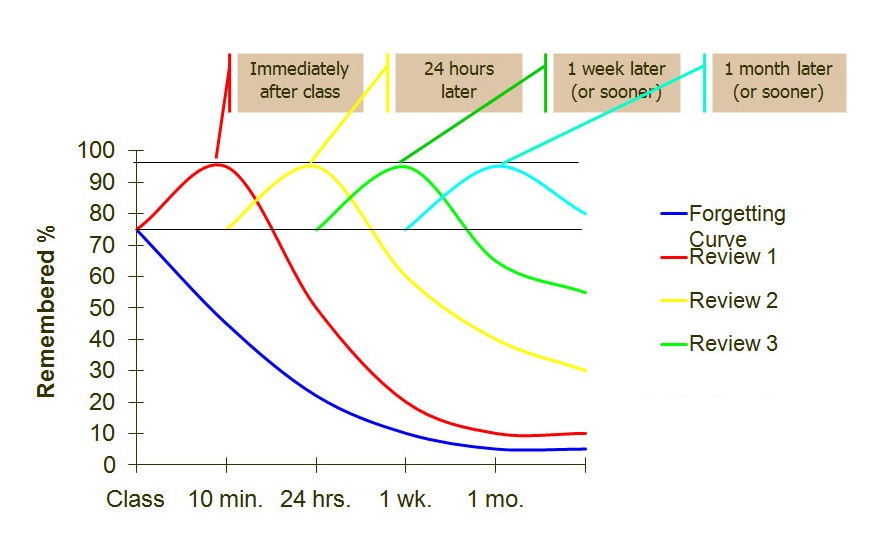As most people begin studies for certification exams, they spend hours gathering the “best” or best-priced resources, but, they spend very little time determining how to study. Most students have only experienced courses in which teachers organize the learning. Students are rarely taught how to study and retain information on their own.
My goal is to help you understand how to organize your studies to maximize your study time as well as your ability to retain information. Sample study plans are laid out here, but will not fit everyone. Your own study plan may look quite different and how much effort you put into making a study plan work is entirely up to you.
Some things that are detrimental to retaining information:
- Studying too much information
- Studying unrelated information
- Trying to study with distractions
- Failure to take adequate breaks
- Failure to review within 24 hours
- Failure to review again, within 1 week
- Failure to get adequate sleep
I have seen students who have difficulty because they are actually doing all of the above!
Reading a technical book, cover to cover (or worse, skipping around), without breaks or review is about as useful as reading the local newspaper to prepare for your test.
Consider two examples of the “Curve of Forgetting” versus the “Curve of Remembering”


Look at the amount of information that is LOST – FOREVER – after just 24 hours!
Those who review within 10 minutes, 24 hour, 1 week (or sooner) and 1 month (or sooner) retain most of their learning. Those who ear it once and move on have lost most of their learning after the first 24 hours. Unless you really love starting over, it is CRUCIAL that you review after 10 minutes, after hours, within 1 week, and within 1 month. Be sure you understand the AND. There is no “or.” If you want to retain the information, those are the critical times for review – the bare minimum.
Retain More Information
To conquer the “Curve of Forgetting,” as well as some other blocks to effective study, begin here:
- Set aside 1-2 hours of uninterrupted study time, preferably at the same time each day
- Communicate the importance of uninterrupted study to family members or roommates
- Do not take calls during this time
- Do not reply to texts or invitations to chat during study time
- Organize materials so that they are ready and accessible
- For online studies, organize sources in folders for easy access
- Have notetaking materials handy
- Have the previous day’s review material ready
- Have today’s beginning text marked
- Make the study environment as comfortable and distraction-free as possible
- For online studies, close tabs & windows that are not part of the day’s material
- Close or turn of chats and notifications
- Turn off your phone and email notifications
- Turn off “Candy Crush”
- Set up a plan and timeframe to coplet the information you need to know
- Plan for complete blocks of information, without skipping around
- Plan for breaks
- Individuals are different, so leave room for adjustments
- Begin with the basic outline below, and adjust it to find what works for you.

